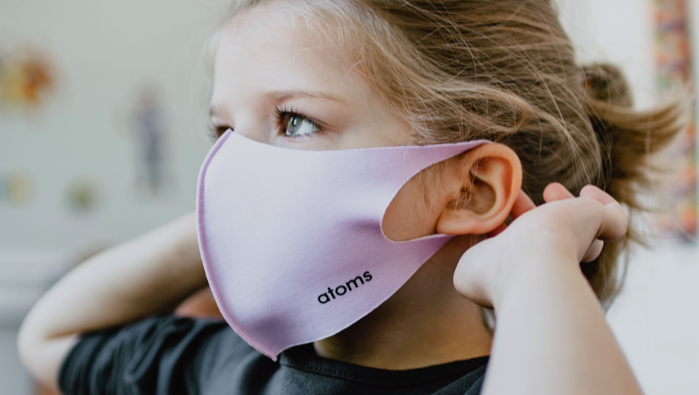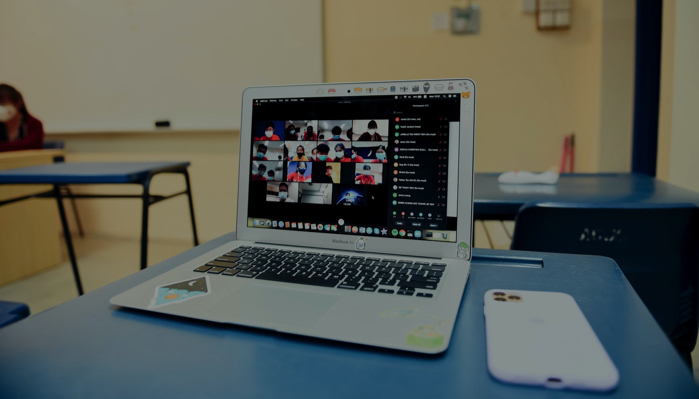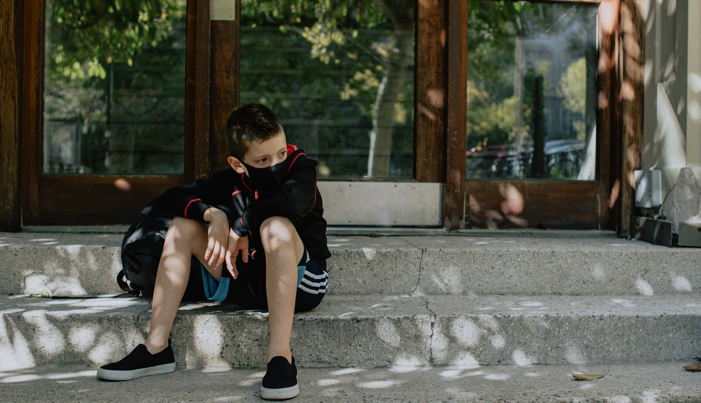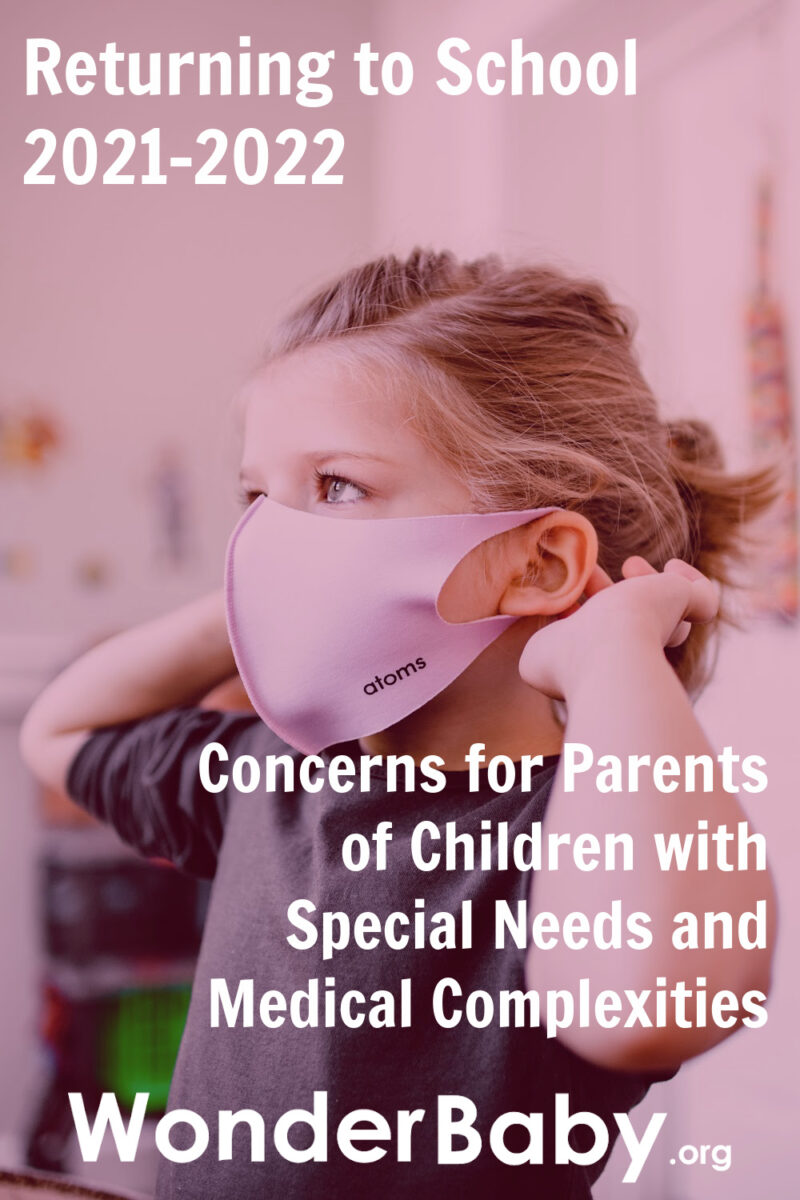Returning to School 2021-2022: Concerns for Parents of Children with Special Needs and Medical Complexities

Everything has been disrupted in the last year. The pandemic, lockdowns, employment instability and virtual learning all conspired together to make lives difficult for everyone, but arguably one of the hardest hit groups have been families with special needs children.
Special needs kids – and their caregivers – often rely on expected routines and reliable support networks just to make it through the day. Schools, medical facilities, therapists and personal care attendants may have all been disrupted or even nonexistent for months at a time. It’s been a hard road to travel.
So here we are in 2021 with the hope of a return to “normal” on the horizon… aren’t you excited?
Maybe not. What does a “normal” school year look like for special needs students? Special needs kids who have been out of school for long periods and unable to access therapies through Zoom may have lost a number of skills over the last school year and might not necessarily be thrilled by the idea of jumping back in to in-person school. Kids with medical complexities may not be ready to rejoin fellow classmates where the risk of infection is certainly mitigated, but still higher than it is at home.
Some families may be feeling pressured to return to full-time in-person school, others may still be fighting for services lost during the pandemic. Here are some tips to help you navigate the next few months as we all walk in to the 2021-2022 school year with trepidation and hopefully as much confidence as possible!

Be Prepared and Expect the Unexpected
We need to be prepared to change in an instant. Remember how quickly everything changed in March 2020? Even though many communities are “re-opening” and things are starting to get back to normal for many of us, the pandemic isn’t over and things can change again.
A good place to start is to have your emergency contacts all updated with your school and care providers. Keep in mind that if your child is attending school in person and shows any COVID symptoms, they will be sent home. They may also be sent home if there is any notification of possible COVID contact. Who is allowed to pick up your child from school? Where will they go? Will someone be at home to watch them? Having a contingency plan in place for sudden dismissal will help ease a lot of anxiety.
Similarly, if COVID cases spike in your school or community you may be looking at a sudden school closure for a week or more to reduce virus spread. If you can, have a plan in place for periods of unexpected “vacation.”
It’s also a good idea to reach out to your school ahead of time to find out what their COVID policies are. The more you know ahead of time, the more you can prepare. Some things to ask about are:
- Is PPE required for staff and/or students?
- What are the plans for school closures due to covid exposure?
- Is COVID testing required for staff and/or students?
- Are COVID vaccines required for staff and/or students?
- Are parents required to send in a wellness form daily to attest that their child has no COVID symptoms?
- How is social distancing being maintained?
- Are there limits to class sizes and interactions between classrooms?
- Are staff working in multiple classrooms?
- Is there any sharing of school equipment?
- What are the cleaning and sanitizing procedures?
- How is food preparation being managed and will students be eating in the classroom or the cafeteria?
- What is the policy for use of community spaces like a motor sensory rooms, PT equipment, gyms?
- What is the policy for outdoor spaces, like playgrounds or recess?
You may be disappointed to find that your school hasn’t considered all of these scenarios, but at least bringing them up gives the administration the chance to address them!
Once you understand the school policies, the next things to consider are alternatives and exceptions. You are a parent of a special needs child – this is where you excel, right? Are kids required to wear masks in school? OK, great – what if my child can’t wear a mask? There are resources to help kids with sensory issues learn to accept a mask, but we all know that this just isn’t practical for some kids. Talk to your school about reasonable exceptions to certain rules and brainstorm possible alternatives. For example, if your child can’t wear a mask, would a sneeze guard or other type of barrier work instead?
And finally: Automate, automate, automate! As a special needs parent you are good at wearing multiple hats, but this pandemic has taken it a bit far! Anything that you can put on autopilot will make your life easier. Do you have to send in a wellness form every morning with your child? Automate that email! Set timers and alerts on your phone for any regular tasks you may need to do. Put your prescriptions on autofill and, if possible, have them delivered to your door. I’ve even set up a regular grocery list that pre-populates my weekly grocery order and yes, I’m still having groceries delivered. It costs a bit more for delivery, but the time saved is totally worth it!

Virtual vs Hybrid vs In-Person Learning
Many families are still weighing multiple learning options for their children. The CDC has developed a decision-making tool for parents, but generally you will be looking at:
- Fully in-person school
- In-person school with the option to go hybrid later in the year if necessary
- Hybrid learning (some days remote or virtual and some days in person)
- Fully virtual learning
- At home or homebound learning
- Homeschool
As we get closer to the 2021-2022 school year, it will be clearer which option will work best for your family. Often, school districts will push one option as the standard (our school district is very firmly pressuring for full in-person learning), but remember that there is an “I” in IEP – individual needs must be taken into account!
Talk to your child’s teachers, therapists and medical team. Make a decision as a team about what would work best for your child and don’t base that decision on what your school or school district is asking for. Once you are comfortable with a learning scenario, work with the administrators to make it happen. Rely on the professionals you trust (doctors, therapists, etc) and have them document the reasoning behind their decisions. This doesn’t all have to be on you and the more letters of necessity or prescriptions you have to back up what you are asking for, the better!
If you decide that the risks are too great for in-person learning, remember that “virtual” is not your only alternative. Many special needs parents homeschool successfully and also receive services through an IEP. If this sounds like the right option for you, look for groups of other homeschooling parents in your area for support and advice. If your child is visually impaired, I highly recommend the Blind Homeschoolers Facebook Group.
Another option may be homebound learning. This is not a new concept, but it is taking on new ramifications with the pandemic. Children with an IEP who undergo surgery or have other medical conditions making it impossible to attend school in person are still entitled to their IEP services. Under this plan, you may have a special education teacher come to your home for an hour or so to provide daily instruction and therapists (either from school or outsourced) would also come to your home to provide the number of hours of therapy determined through your IEP’s service delivery grid. This can be a tough sell on your part, so read up on how to request homebound placement and get ready for a possible fight!
We’ve successfully used hybrid learning in our family throughout much of the pandemic, so don’t leave this option off the table if in-person school is still too risky for your child. My son is medically complex and at high risk for COVID, but I also felt that he needed in-person instruction for therapies like PT and OT and I was comfortable that the benefit of in-person therapy would outweigh the risk of exposure. Keep in mind that virtual learning is here to stay no matter what the future of COVID looks like, so your school has the technology and infrastructure to provide virtual sessions if necessary. I’m happy to report that for us, services like speech therapy worked great through remote learning, so think about what could possibly be done through a computer and what would need to be done in person.
No matter what you decide to do for your child, remember to get it all in writing! Update your IEP, request a Remote Learning Plan where appropriate and document everything.

Managing Anxiety (for Both You and Your Child)
No matter how much you plan, there is still a lot of uncertainty, and uncertainty can bring stress and anxiety. A big part of managing anxiety is being able to recognize that there are going to be a lot of unknowns and unexpected events, and that’s okay. Focus on what you can control and what you can do proactively.
There are a lot of resources out there about how to manage anxiety. I can sum them up here:
- Limit your exposure to the news or social media
- Take frequent breaks
- Get a good amount of sleep
- Eat well
- Exercise
- Stay connected with friends
- Spend quality time with family
OK, now let’s all roll our eyes, take a deep breath, and just do the best we can! Of course, we could all be perfectly calm in a perfect world where we get enough sleep and exercise daily. But this is the real world, we have special needs kids to advocate for and we’re dealing with a pandemic.
A bit more realistic advice might be:
- Focus on what you can control
- Try to avoid too much “what-if” thinking
- Think positively
- Don’t expect perfect from yourself (sometimes good enough is good enough!)
- Reach out for help when you can
- Be in constant contact with your child’s medical team so you know you are being proactive
If your child is also displaying signs of anxiety, there are ways you can help!
- Be open with your child and discuss what is happening and what your plan is
- Ask them how they are feeling and check in often
- Develop realistic expectations for your child
- Practice wearing a mask before going to school if it’s required (and they can wear one)
- Practice hand washing and talking about keeping our hands clean
- Put together a kit they can keep in their bag with “safety” things they may need, like extra masks, hand sanitizer, disinfectant wipes, etc
- You may be a nervous wreck, but don’t let your child see that!
Most kids with special needs really benefit from daily routines. Try to develop routines so your child knows what to expect, especially with sleeping and eating times. Stick to your routines as much as possible even if school is closed or you are learning remotely. With hybrid school models, check in with the school to find out what times they have breaks or eat lunch and keep that same routine during at home learning days.
Good luck and do your best! We will get through this pandemic and back to “normal” – whatever that means!
Resources
- A Day in Our Shoes: 150 Distance Learning Resources for Parents
- Lighthouse Guild: Bouncing Back with Resilience as Schools Reopen
- Mayo Clinic: Safety Tips for Returning to School During COVID-19
- CDC: Back to School Planning: Checklists to Guide Parents, Guardians, and Caregivers
- Children’s Health: COVID-19 Back-to-school guidance

Related Posts

Eye Conditions and Syndromes, Visual Impairment
Neuralink Announces Plans to Restore Sight to the Blind with Brain Chip
Elon Musk’s company Neuralink has announced plans to begin human trials of its new “Blindsight” brain chip by the end of 2025.

IEPs
What Should I Bring to My Child’s First IEP Meeting?
Prepare for your child's first IEP meeting with confidence! Discover exactly what documents to bring, including educational records, medical info, and questions to ask.

Special Needs
5 Spring Cleaning Tips for Families of Children with Disabilities
Spring cleaning is an opportunity to create a more accessible, organized, and supportive space for your child with disabilities. Declutter, deep clean, and refresh!